Sodium Phosphate Manufacturer and Supplier
CAS No.: 7601-54-9 | EC Number.: 231-509-8 | Molecular formula.: Na3PO4
Sodium Phosphate
Sodium Phosphate Manufacturers, Sodium Phosphate Suppliers, Sodium Phosphate Formula, Sodium Phosphate Price, Sodium Phosphate SDS, Sodium Phosphate Exporter in Mumbai, India.
Vinipul Chemicals Pvt. Ltd. is a renowned manufacturer, supplier, and exporter of high-purity Sodium Phosphate (CAS No: 7601-54-9), specializing in the production of specialty chemicals in India. Our company takes pride in providing Sodium Phosphate with exceptional purity, ensuring that it is free from impurities. We achieve this high level of purity by utilizing superior quality chemicals and employing state-of-the-art manufacturing equipment, all in adherence to the stringent standards set by the international industry.
As a trusted Sodium Phosphate manufacturer, we are committed to delivering Na3O4P of the utmost quality. Our product exhibits fine quality and meets the precise composition requirements. We understand the importance of long shelf life, and our Sodium Phosphate is formulated to maintain its efficacy and stability over an extended period.
As a prominent sodium phosphate supplier, we prioritize accuracy and reliability, guaranteeing that our product fulfils the needs and expectations of our clients. Whether for industrial applications or research purposes, our Sodium Phosphate is well-suited for various applications. We consistently strive to meet and exceed customer satisfaction through our commitment to excellence in product quality, manufacturing processes, and customer service.
What is Sodium Phosphate?
Sodium phosphate is a versatile compound that belongs to a group of salts consisting of sodium (Na+) and phosphate (PO43−) ions. The phosphate ion can also combine with additional phosphate ions to form various types of anions, such as di-, tri-, tetra-, and polyphosphates. These salts exist in both anhydrous (water-free) and hydrated forms, with the hydrated forms being more prevalent in nature.
The diverse family of sodium phosphate compounds provides scientists, researchers, and industry professionals with a broad spectrum of options to suit their specific needs. Each variant, whether anhydrous or hydrated, possesses distinct properties and characteristics that make it suitable for different purposes. It is important to consider the precise requirements and intended application when selecting the appropriate sodium phosphate salt, ensuring optimal performance and desired outcomes.
Sodium Phosphate Details
This table provides information about Sodium Phosphate, a chemical compound with the CAS No. 7601-54-9 and EC Number. 231-509-8. The table also lists various Sodium Phosphate common name and synonyms. The table contains Sodium Phosphate structure, Sodium Phosphate solubility and molecular formula. It is a white granular powder of monoclinic crystals. Sodium Phosphate pH. value is also mentioned in the table. Sodium Phosphate is commonly used in various industries in different applications. It is also used in the pharmaceutical industry for various purposes.
Specifications
| Chemical name | Sodium Phosphate |
| CAS No | 7601-54-9 |
| EC Number | 231-509-8 |
| Commercial name / Synonyms | TRISODIUM PHOSPHATE, 7601-54-9, Sodium phosphate, Sodium orthophosphate, Phosphoric acid, trisodium salt, Tromete, Trisodium orthophosphate, Trisodium phosphate anhydrous, Tribasic sodium phosphate |
| Molecular formula | Na3PO4 |
| Chemical Structure | 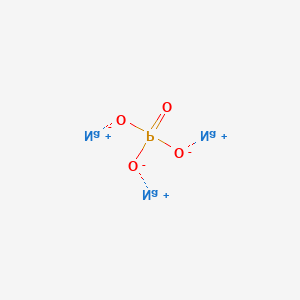 |
| Melting Point | 1583 °C |
| IUPAC Name | trisodium-phosphate |
| Component Compounds | Phosphoric Acid Sodium |
| Physical Form | Colourless Crystals |
| Physical Appearance | Dry Powder / Pellets / Large Crystals / Wet Solid / Liquid |
| Solubility | Soluble in water (118 mg/ml at 25° C). |
| pH | 7.5 |
| Packaging Details | 25 kg / 50 kg / HDPE packaging bags / Drum/ As per Client’s requirements |
Computed Properties
| Property Name | Property Value |
| Molecular Weight | 163.941 g/mol |
| Hydrogen Bond Acceptor Count | 4 |
| Exact Mass | 163.92272832 g/mol |
| Monoisotopic Mass | 163.92272832 g/mol |
| Heavy Atom Count | 8 |
| Topological Polar Surface Area | 86.2Ų |
| Complexity | 57.4 |
| Covalently-Bonded Unit Count | 4 |
| Compound Is Canonicalized | Yes |
Related Compounds with Annotation
The table provided contains a list of compounds with their corresponding Compound CID, Neighbour Type, and Annotation Types Count. The compounds are primarily related to various forms of Sodium phosphate compounds. Some notable compounds include Disodium hydrogen phosphate, Sodium phosphate, Sodium pyrophosphate, and Sodium phosphate dibasic. The table also includes compounds with specific Compound CID numbers and other compounds that have not been specifically identified. The Annotation Types Count column indicates the number of annotations associated with each compound. Overall, the table provides an overview of different sodium and phosphate compounds and their associated identifiers and properties.
| Structure Image | Structure Name | Compound CID | Neighbour Type | Annotation Types Count |
|---|---|---|---|---|
 | Disodium hydrogen phosphate | 24203 | 2D | 13 |
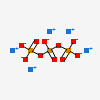 | Sodium phosphate | 24243 | 2D | 13 |
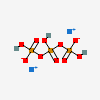 | Sodium pyrophosphate | 24403 | 2D | 12 |
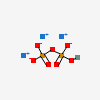 | 56802-99-4 | 42010 | 2D | 4 |
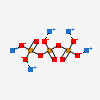 | Disodium phosphate hydrate | 61488 | 2D | 4 |
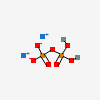 | Sodium phosphate P 32 | 71180 | 2D | 7 |
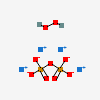 | Compound CID: 517048 | 517048 | 2D | 1 |
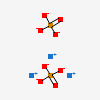 | Sodium phosphate, tribasic- | 517071 | 2D | 1 |
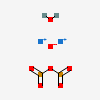 | 13708-85-5 | 6336603 | 2D | 8 |
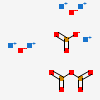 | Q418498 | 9837369 | 2D | 1 |
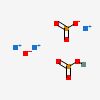 | NA | 11521178 | 2D | 1 |
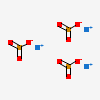 | NA | 14687680 | 2D | 1 |
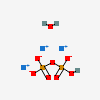 | 62533-93-1, Sodium metaphosphate oxide (Na15(PO3)13O) | 16132028 | 2D | 3 |
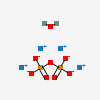 | NA | 16160791 | 2D | 2 |
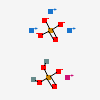 | NA | 16162310 | 2D | 1 |
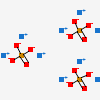 | NA | 16164774 | 2D | 1 |
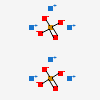 | NA | 19985253 | 2D | 1 |
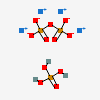 | Sodium phosphate sodium hydroxide | 20215742 | 2D | 1 |
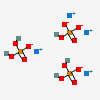 | NA | 20327971 | 2D | 1 |
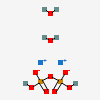 | NA | 20402777 | 2D | 1 |
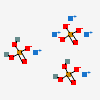 | NA | 20581842 | 2D | 1 |
 | CS-0013800 | 21225608 | 2D | 1 |
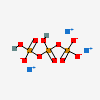 | NA | 21225609 | 2D | 1 |
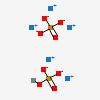 | NA | 21225616 | 2D | 1 |
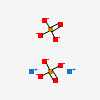 | NA | 21889582 | 2D | 1 |
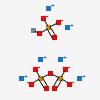 | POTASSIUM DISODIUM PHOSPHATE | 21902647 | 2D | 2 |
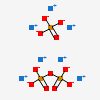 | Sodium phosphate, tribasic, hydrate | 21960685 | 2D | 4 |
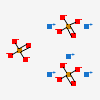 | NA | 22025832 | 2D | 1 |
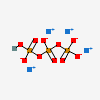 | NA | 22731698 | 2D | 1 |
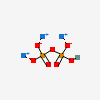 | SODIUM PHOSPHOALUMINATE | 56840805 | 2D | 9 |
 | NA | 58592228 | 2D | 1 |
 | NA | 59119929 | 2D | 1 |
 | NA | 59567660 | 2D | 1 |
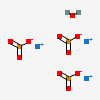 | NA | 73694676 | 2D | 1 |
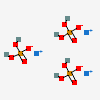 | Sodium phosphate dibasic, p.a., Sodium phosphate dibasic | 86587427 | 2D | 1 |
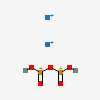 | SR-01000944553, SR-01000944553-1 | 123132506 | 2D | 1 |
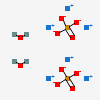 | NA | 131727175 | 2D | 1 |
 | NA | 131858953 | 2D | 1 |
 | NA | 157083340 | 2D | 1 |
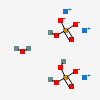 | NA | 157390131 | 2D | 1 |
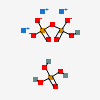 | NA | 157625254 | 2D | 1 |
 | NA | 157765064 | 2D | 1 |
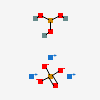 | NA | 157773806 | 2D | 1 |
 | NA | 157848274 | 2D | 1 |
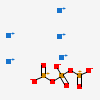 | NA | 157894747 | 2D | 1 |
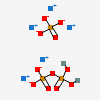 | NA | 158109011 | 2D | 1 |
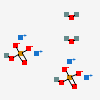 | NA | 158236029 | 2D | 1 |
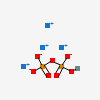 | NA | 158317183 | 2D | 1 |
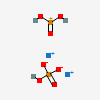 | NA | 158415852 | 2D | 1 |
 | NA | 158705951 | 2D | 1 |
 | NA | 158739539 | 2D | 1 |
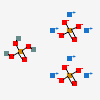 | NA | 158902613 | 2D | 1 |
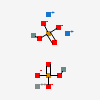 | NA | 159221552 | 2D | 1 |
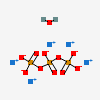 | NA | 159384761 | 2D | 1 |
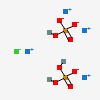 | NA | 159502594 | 2D | 1 |
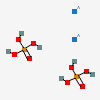 | NA | 159589882 | 2D | 1 |
 | NA | 159686031 | 2D | 1 |
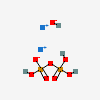 | NA | 159816390 | 2D | 1 |
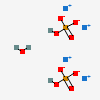 | NA | 159854360 | 2D | 1 |
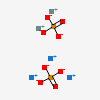 | NA | 159869043 | 2D | 1 |
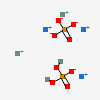 | NA | 159993976 | 2D | 1 |
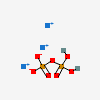 | NA | 160054744 | 2D | 1 |
 | NA | 160157640 | 2D | 1 |
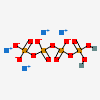 | NA | 160341941 | 2D | 1 |
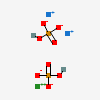 | NA | 160353985 | 2D | 1 |
 | NA | 160357517 | 2D | 1 |
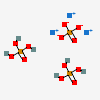 | NA | 160416700 | 2D | 1 |
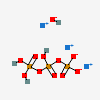 | NA | 160539386 | 2D | 1 |
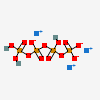 | NA | 160576304 | 2D | 1 |
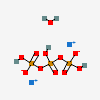 | NA | 160585046 | 2D | 1 |
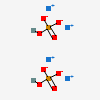 | NA | 160954175 | 2D | 1 |
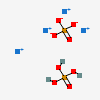 | NA | 161027704 | 2D | 1 |
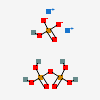 | NA | 161051059 | 2D | 1 |
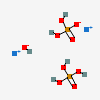 | NA | 161377195 | 2D | 1 |
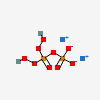 | NA | 161385779 | 2D | 1 |
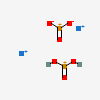 | NA | 161582796 | 2D | 1 |
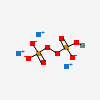 | NA | 161616261 | 2D | 1 |
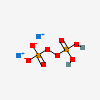 | NA | 161751421 | 2D | 1 |
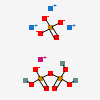 | NA | 161837703 | 2D | 1 |
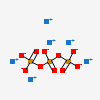 | NA | 161962896 | 2D | 1 |
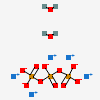 | NA | 161962897 | 2D | 1 |
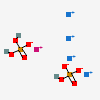 | NA | 161992564 | 2D | 1 |
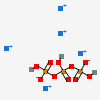 | NA | 164130164 | 2D | 1 |
Sodium Phosphate Price
| Product Range | Price |
| Mono Sodium Phosphate | Rs 80/kilogram |
| Di Sodium Phosphate | Rs 110/kilogram |
| Tri Sodium Phosphate | Rs 36/kilogram |
Prices shown above are provisional prices and may change due to different market conditions for latest prices
Call Us
+91-932 223 1817
Mail Us
business@vinipulchemicals.com
Types of Sodium Phosphate
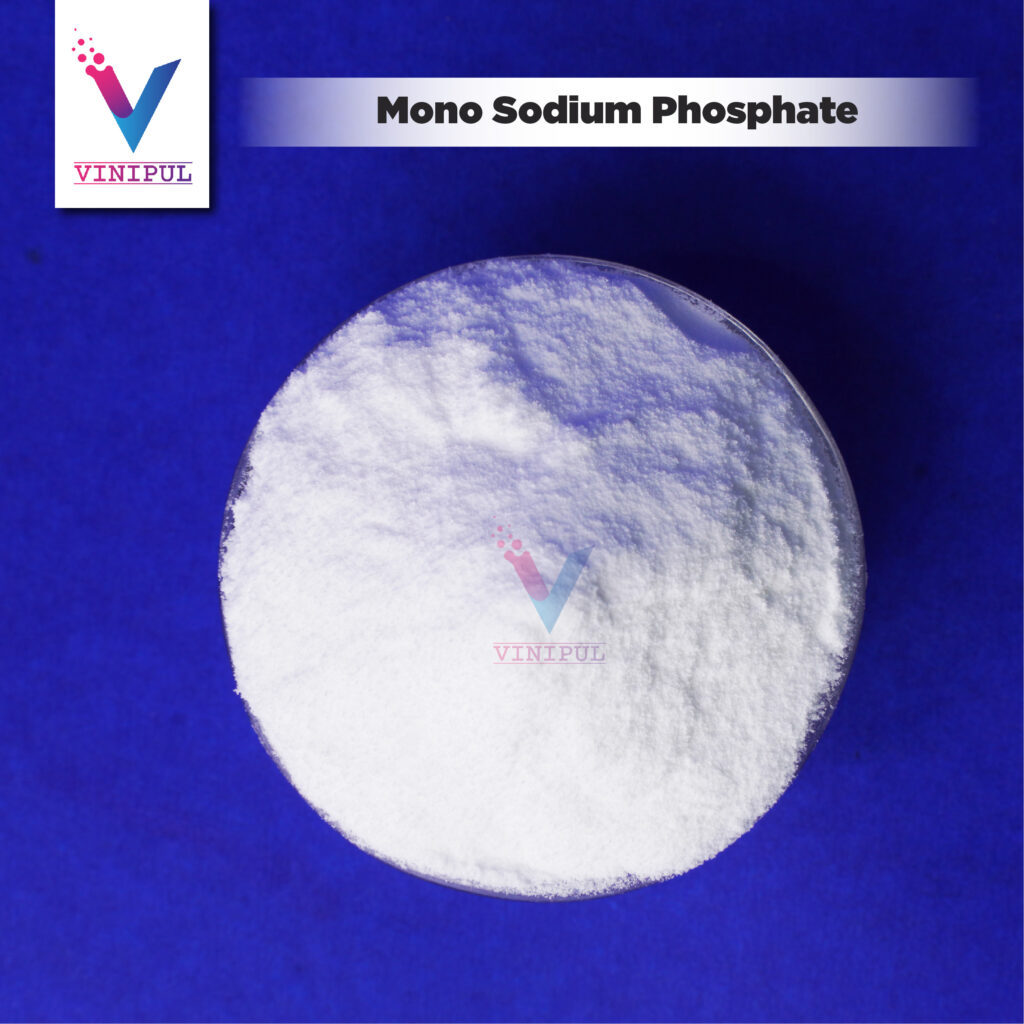
Monosodium Phosphate (MSP)
Monosodium phosphate, also known as monobasic sodium phosphate or sodium dihydrogen phosphate (NaH2PO4), is a white crystalline powder. It is commonly used as a food additive, pH buffer, and emulsifier. MSP is often employed in the food industry to adjust the acidity and improve the texture of processed foods. It is also utilized in various industrial applications, including water treatment, pharmaceuticals, and detergents.
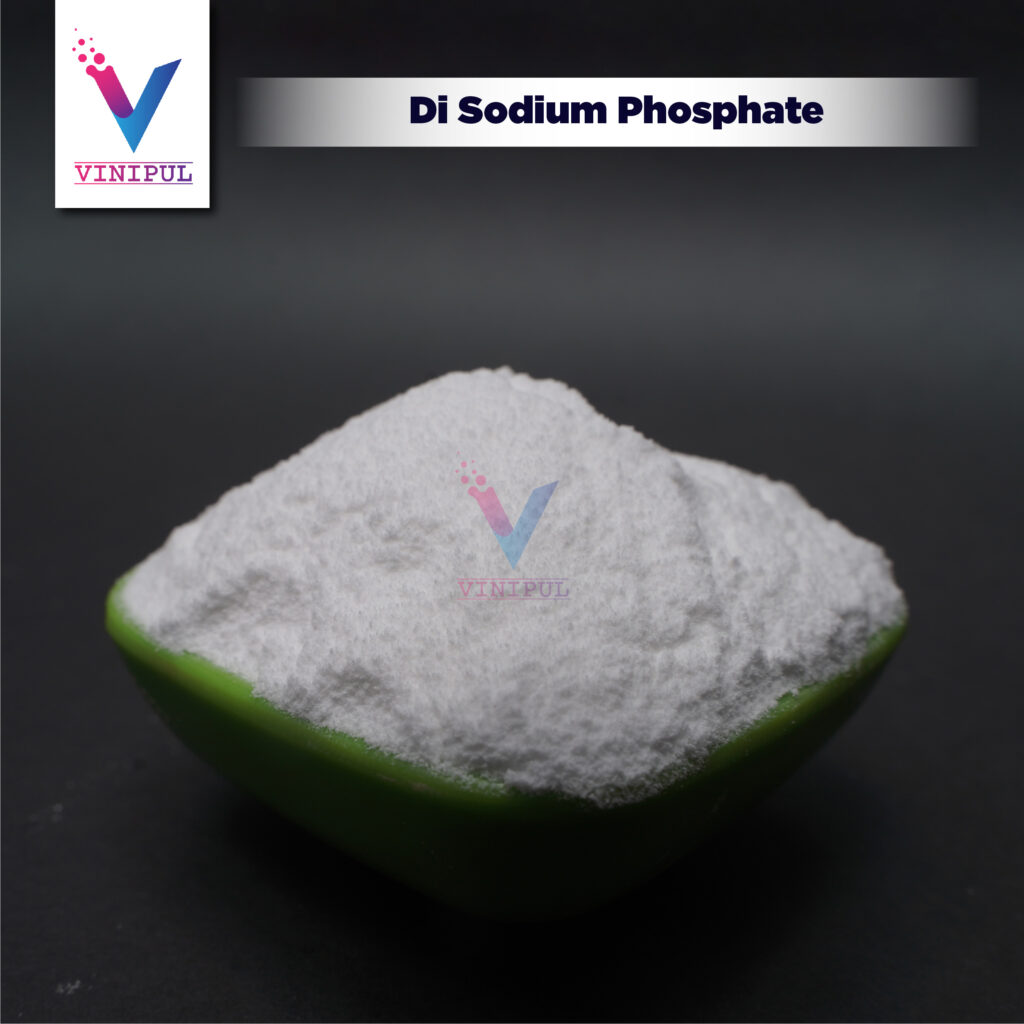
Disodium Phosphate (DSP)
Disodium phosphate, also known as sodium hydrogen phosphate or sodium phosphate dibasic (Na2HPO4), is a crystalline powder or granular substance. DSP has a wide range of applications in the food industry as an acidity regulator, emulsifier, and thickening agent. It is used in various food products, including baked goods, meats, beverages, and dairy products. In addition, DSP finds applications in water treatment, pharmaceuticals

Trisodium Phosphate (TSP)
Trisodium phosphate (TSP) or sodium phosphate tribasic (Na3PO4) is a white, granular or crystalline substance. TSP is primarily used as a cleaning agent and degreaser due to its strong alkaline properties. It is commonly found in household cleaning products, such as detergents and dishwashing powders. TSP is also used in certain food applications as a sequestrant and pH regulator, and it has industrial uses in water treatment
How to Make Sodium Phosphate?
The manufacturing process of Sodium Phosphate typically involves several steps. Here is a general overview of the process:
- Raw Materials Preparation: The main raw materials used in sodium phosphate production are phosphoric acid (H3PO4) and sodium hydroxide (NaOH). These raw materials are typically obtained from natural phosphate rock and sodium chloride sources.
- Phosphoric Acid Production: Phosphoric acid is produced by treating phosphate rock with sulfuric acid. This reaction forms phosphoric acid and calcium sulfate, which is further processed to produce gypsum.
- Neutralization: Phosphoric acid is then neutralized with sodium hydroxide. The two reactants are mixed in controlled proportions, resulting in the formation of sodium phosphate and water.
- Crystallization and Filtration: The sodium phosphate solution is then subjected to controlled cooling and agitation, promoting the crystallization of sodium phosphate. The crystals are separated from the liquid through filtration processes.
- Drying: The obtained sodium phosphate crystals are dried to remove any remaining moisture and to achieve the desired level of purity. Various drying techniques, such as air drying or heat drying, can be employed.
- Packaging and Storage: The dried sodium phosphate product is packaged in appropriate containers or bags for storage and distribution. It is important to protect the product from moisture and contamination during storage.
It’s worth noting that there are different forms of sodium phosphate, such as monosodium phosphate (NaH2PO4), disodium phosphate (Na2HPO4), and Trisodium phosphate (Na3PO4), each with its own specific manufacturing processes and applications. The above process represents a general outline of sodium phosphate production and may vary depending on the specific form and grade of sodium phosphate desired.
Is sodium phosphate soluble in water?
Yes, sodium phosphate is soluble in water. It readily dissolves in water to form an aqueous solution. This property of solubility in water is one of the reasons why sodium phosphate is widely used in various industries and applications, including food processing, pharmaceuticals, and detergents. When sodium phosphate is added to water, it dissociates into sodium ions (Na+) and phosphate ions (PO43-), which are then uniformly dispersed throughout the water, resulting in a clear, homogeneous solution. The solubility of sodium phosphate in water makes it easy to handle and incorporate into different processes and formulations.
Is sodium phosphate soluble in acetone?
Sodium phosphate exists as white or slightly yellow, easily crumbled granules or powder. It demonstrates excellent solubility in water, readily dissolving in it. It is also soluble in methanol, with a lower solubility in alcohol and chloroform. Sodium phosphate exhibits slight solubility in acetone and dioxane.
Is sodium phosphate a preservative?
Yes, sodium phosphate can act as a preservative in certain applications. It is commonly used as a preservative in food and beverages to extend their shelf life by inhibiting the growth of microorganisms. Sodium phosphate, particularly sodium dihydrogen phosphate (monosodium phosphate) and disodium phosphate, possess antimicrobial properties that help prevent spoilage and maintain product quality. Additionally, its pH-buffering capabilities contribute to preserving the stability and freshness of various food and beverage products. However, it’s important to note that the specific use and regulations surrounding sodium phosphate as a preservative may vary depending on the country and product.
Industrial Applications
Sodium phosphate has various industrial applications across different sectors. Here are some common industrial uses of sodium phosphate:

Water Treatment
Sodium phosphate compounds, such as Trisodium phosphate (TSP) and disodium phosphate (DSP), are used in water treatment processes. They help control pH levels, prevent scaling, and inhibit corrosion in boilers, cooling towers, and water distribution systems.

Detergents and Cleaning Industry
Sodium phosphate, especially disodium phosphate (DSP), is utilized in laundry detergents, dishwashing detergents, and other cleaning products. It acts as a builder, enhancing the effectiveness of detergents by softening water, removing stains, and improving soil suspension.

Food Industry
Sodium phosphate compounds, including monosodium phosphate (MSP), disodium phosphate (DSP), and Trisodium phosphate (TSP), have various applications in the food industry. Sodium phosphate in food is used as emulsifiers, buffering agents, texturizers, and pH regulators in processed foods, meat products, bakery goods, dairy products, and beverages.

Pharmaceuticals
Sodium phosphate compounds find applications in the pharmaceutical industry. They are used as excipients in drug formulations to control pH, enhance stability, and improve drug solubility. Sodium phosphate buffer is also utilized in the manufacturing of injectable drugs and other pharmaceutical preparations.

Metal Finishing
Sodium phosphate compounds, particularly Trisodium phosphate (TSP), are used in metal finishing processes. They act as fluxes, helping to remove oxides, grease, and other contaminants from metal surfaces prior to painting, coating, or plating.
It’s important to note that the specific application and choice of sodium phosphate compound may vary depending on the desired properties, regulations, and requirements of each industry.
Sodium Phosphate Uses
Sodium phosphate finds diverse applications in various industries. Here are some examples:
- Medicinal Use: Sodium phosphate is utilized in medicine to treat constipation and to prepare the bowel for medical procedures.
- Food Emulsifiers: Sodium phosphate is used as an emulsifier in processed cheese, helping to improve texture and stability.
- pH Control in Food: Sodium phosphate is employed to control the pH of processed foods, ensuring the desired acidity or alkalinity levels for taste, safety, and preservation.
- Water Softening and Anti-Rust: Sodium phosphate is used in detergents as a water softener, preventing the formation of mineral deposits. It is also utilized as an efficient anti-rust solution.
- Thickening and Leavening Agent: Sodium phosphate acts as a thickening agent and leavening agent in baked goods, contributing to the texture and volume of the final product.
These are just a few examples of the industrial applications of sodium phosphate. Its versatility and varied properties make it a valuable ingredient in several sectors, including food processing, pharmaceuticals, and cleaning products.
Where to buy Sodium Phosphate?
If you are looking to buy Sodium Phosphate then Vinipul Chemicals Pvt. Ltd. is a prominent manufacturer, supplier, and exporter of chemicals in Mumbai, India that can help you make the right choice. As one of the leading sodium phosphate suppliers having years of experience and expertise in the chemical industry, we have earned a strong reputation for delivering high-quality products that meet international standards. Our state-of-the-art manufacturing facility, advanced technology, and stringent quality control measures ensure the purity, consistency, and reliability of their sodium phosphate products.
Vinipul Chemicals caters to the diverse needs of customers worldwide and has established a strong distribution network to efficiently serve clients in different regions. Our customer-centric approach, competitive pricing, timely delivery, and excellent customer support services have contributed to their success and long-term relationships with clients. In summary, Vinipul Chemicals Pvt. Ltd. is a trusted name in the sodium phosphate industry. We offer a wide range of sodium phosphate variants, tailored to meet specific industry requirements. Our commitment to professionalism, integrity, and innovation has made us a reliable partner for customers seeking high-quality sodium phosphate products.
FAQ's
Sodium Phosphate is available in Pure and Technical grade, typically in powdered or crystalline form. It includes three subtypes: Monobasic, Dibasic, and Tribasic.
Sodium Phosphate is used across industries such as food processing, animal feed, oil drilling, dairy, water treatment, pharmaceuticals, cosmetics, and fuel boiler applications.
It offers excellent solubility, acts as a pH stabilizer, is environmentally friendly, and enhances yield in food and feed formulations. It’s also effective in corrosion inhibition, emulsification, and scale prevention.
Yes, Sodium Phosphate complies with multiple international and domestic standards including REACH, RoHS, FSSAI, GOTS, and ISO certifications, depending on the grade.
Sodium Phosphate has a shelf life of 2 years from the date of manufacturing. It should be stored in a cool, dry place, away from moisture and direct sunlight.
No, Sodium Phosphate is not considered hazardous. Basic protective measures like gloves and goggles are recommended during handling.
It is typically packed in HDPE drums or industrial-grade bags, available in 25 kg and 50 kg sizes. Custom or neutral labeling is also offered on request.
Yes, we offer both neutral packaging and private labeling as per the client’s branding requirements.
Orders are usually dispatched within 1 to 2 working days from the date of confirmation.
Yes, we supply PAN India and export to multiple international markets with complete regulatory and shipping documentation.
Yes, all relevant documentation including COA, MSDS, TDS, and SDS is part of our standard operating process.
Yes, we provide internal QC reports and offer third-party lab testing upon request.
Yes, we provide samples to help clients validate quality before bulk purchase.
The standard MOQ is 25 kg.
Yes, special pricing for trial quantities is available for new customers.
We offer flexible pricing models including EXW, FOB, and CIF based on customer requirements.
Yes, we issue both domestic GST-compliant and international export invoices.
Yes, volume discounts are available depending on the order size and product type.
Our clients report higher product yield, snow-white purity, easy solubility, and superior packaging quality compared to imported or local alternatives.
We offer consistent quality, timely delivery, and better customer support, helping clients avoid delays and variability common with other suppliers.
Yes. A food company that previously relied on imports reported improved product output and lower costs after switching to our Sodium Phosphate.
We offer regular follow-ups, feedback collection, complaint resolution, dispatch updates, and reorder support.
While we cannot disclose names due to confidentiality, we have long-standing relationships with reputed buyers across industries.
Yes, our manufacturing and quality systems are ISO-compliant, and products can be offered under GMP standards if required.
We combine high purity with competitive pricing and fast delivery — a rare combination that keeps clients returning.
New buyers often ask for credit terms. As per policy, we offer credit after three successful prepaid orders or with a strong reference.
Yes, many clients switched to us due to quality inconsistencies or supply delays from previous vendors.
Delayed dispatch, inconsistent quality, and poor communication — areas where we ensure strong control and support.
The chemical formula is Na₃PO₄ (Trisodium Phosphate).
Sodium Phosphate is available as Monobasic, Dibasic, and Tribasic variants.
Sodium Phosphate typically has a pH around 7.5, making it a neutral to mildly basic compound.
Yes, it is food-grade safe when used within regulatory limits.
It is used as a pH regulator, stabilizer, emulsifier, and preservative in processed foods and drinks.
Sodium Phosphate is generally tasteless and odorless, though high concentrations may impart a slight salty or tangy note.
Yes, it is used as a buffering and pH-adjusting agent in various medical and pharmaceutical applications.
Yes, it is used as a stabilizer and pH balancer in creams, lotions, and other formulations.
Yes, Trisodium Phosphate is widely used in detergents due to its ability to soften water and prevent scale buildup.
Yes, it serves as a corrosion inhibitor, pH buffer, and sequestrant in water treatment systems.
Yes, it is considered low-impact when used and disposed of responsibly, in compliance with local environmental norms.
You can source it from reputed suppliers like Vinipul Chemicals Pvt. Ltd., a trusted manufacturer, exporter, and stockist based in Mumbai, India.
Market Area
We supply and exports Sodium Phosphate in all parts of the world such as
Sodium Phosphate in Africa Countries
South Africa , Nigeria, Kenya, Ghana, Ethiopia, Tanzania, Algeria, Angola, Benin, Botswana, Burkina Faso, Burundi, Cabo Verde, Cameroon, Central African Republic (CAR), Chad, Comoros, Democratic Republic of the Congo, Côte d’Ivoire, Djibouti, Egypt, Equatorial Guinea, Eritrea, Gabon, Gambia, Guinea, Guinea-Bissau, Lesotho, Liberia, Libya, Madagascar, Malawi, Mali, Mauritania, Mauritius, Morocco, Mozambique, Namibia, Nigeria, Rwanda, Sao Tome and Principe, Senegal, Seychelles, Sierra Leone, Somalia, South Sudan, Sudan, Swaziland, Togo, Tunisia, Uganda, Zambia, Zimbabwe.
Sodium Phosphate in Gulf Countries
Oman, Qatar, Kuwait, Saudi Arabia, Dubai, Bahrain, Iran, United Arab Emirates
Sodium Phosphate in Asia Countries
Afghanistan, Armenia, Azerbaijan, Bahrain, Bangladesh, Bhutan, Brunei, Cambodia, China, Cyprus, Georgia, India, Indonesia, Iran, Iraq, Israel, Japan, Jordan, Kazakhstan, Kuwait, Kyrgyzstan, Laos, Lebanon, Malaysia, Maldives, Mongolia, Myanmar (Burma), Nepal, North Korea, Oman, Pakistan, Palestine, Philippines, Qatar, Russia, Saudi Arabia, Singapore, South Korea, Sri Lanka, Syria, Taiwan, Tajikistan, Thailand, Timor-Leste, Turkey, Turkmenistan, United Arab Emirates (UAE), Uzbekistan, Vietnam, Yemen
We supply Sodium Phosphate in all parts of India.
Andhra Pradesh, Arunachal Pradesh, Assam, Bihar, Chhattisgarh, Goa, Gujarat, Haryana, Himachal Pradesh, Jammu & Kashmir, Jharkhand, Karnataka, Kerala, Madhya Pradesh, Maharashtra, Manipur, Meghalaya, Mizoram, Nagaland, Odisha, Punjab, Rajasthan, Sikkim, Tamil Nadu, Telangana, Tripura, Uttarakhand, Uttar Pradesh and West Bengal.
Note: – Please be advised that the information contained in this document is intended for illustrative purposes only. Due to variations in product grade, applications, industries, or uses, the accuracy of the information provided cannot be guaranteed. © Copyright 2023 © Vinipul Chemicals All Rights Reserved (Terms of Use). Reproduction of any material from this site is strictly prohibited without permission. Vinipul Chemicals products are exclusively sold through the company’s website. For precise product specifications and requirements, as well as advice on which products are best suited for your specific application needs, please contact us at business@vinipulchemicals.com Use Terms | Privacy.


